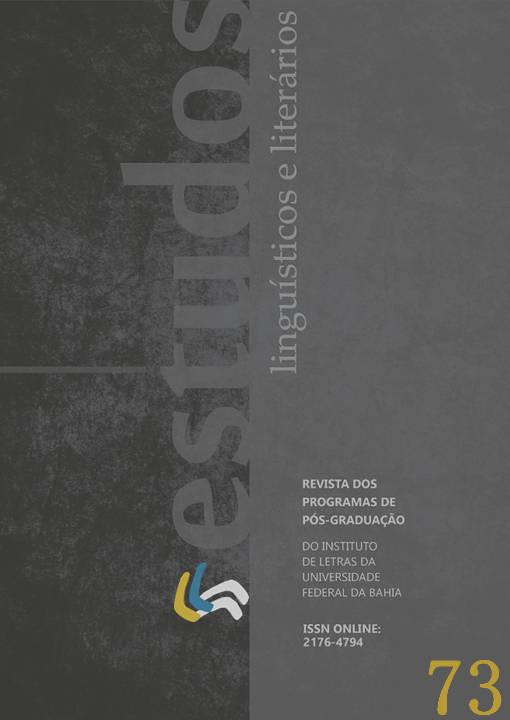BRÁS CUBAS AND BENTINHO
AN INTERSECTION BETWEEN SILENT SPEECHES
DOI:
https://doi.org/10.9771/ell.i73.48603Keywords:
Bentinho, Brás Cubas, Intersection, SpeechAbstract
This research investigates the silent speeches of the characters Bentinho and Brás Cubas and aims to deepen the studies on both creation and literaly language. Masters of speech, the protagonists of the Memories and Dom Casmurro, beyond make impossible, in the narrative, the clamor of other voices, are also incomplete in their speeches, subjects and subordinated to a social adequacy that prevents them from revealing your genuine desires. In this sense, the research aims to identify through the narrative voices of the characters, with an emphasis on what is not said, the points of intersection that chains the narrator characters' view of the world and society. These points are based on the similar historical context of both, the observation of the man of the second reign and the monopoly of language. Similar contemporaries, Brás Cubas and Bentinho are characters of a slave-holding Brazil, however, accustomed to modern and scientific ideas from the then prolific 19th century. These relations of political and social context are indispensable for the full understandingos Machado’s characters and serve as fundamental analytical focuses for the development of the research. Previous studies, present in the critical bibliography of the writer from the Rio de janeiro, provide the necessary support for the satisfactory progress of the study. To do this, the kind of methodology was bibliographical, based on the theoretical assumptions of the following authors: Pereira (1938), Cândido (1963), Bosi (1976), Faoro (1976), Schwarz (1990), Freitas (2001) and Seixas (2017). The obtained results allow the opening of new interpretations about the characters, directing their intersection focus for the evidence implicit in the protagonists' discourse.
Downloads
References
ASSIS, Machado de. Dom Casmurro. 2. ed. Rio de janeiro. Nova Fronteira, 2016.
ASSIS, Machado de. Memórias póstumas de Brás Cubas. 3 ed. São Paulo. Abril, 2010.
BAKHTIN, Mikhail. Estética da criação verbal. Tradução por Maria Emsantina Galvão G. Pereira. 4 ed. São Paulo. Martins Fontes, 2003.
BOSI, Alfredo. Brás Cubas em três versões: estudos machadianos. 1 ed. São Paulo. Companhia das letras, 2006.
BOSI, Alfredo. O enigma do olhar. São Paulo. Atica, 1999.
CANDIDO, Antônio. Dialética da malandragem. In. O discurso e a cidade. Rio de janeiro. Ouro sobre o azul, 2004.
CANDIDO, Antônio. Vários escritos: esquemas de Machado de Assis. 2 ed. São Paulo. Duas cidades, 1977.
FAORO, Raimundo. Machado de Assis: a pirâmide e o trapézio. 2 ed. São Paulo. Brasiliana, 1976.
FREITAS, Luiz Alberto Pinheiro de. Freud e Machado: uma interseção entre psicanálise e literatura, 4 ed. Rio de Janeiro, 2013.
GUIMARÃES, Hélio de Seixas. Machado de Assis: o escritor que nos lê. 1 ed. São Paulo. UNESP, 2017.
PEREIRA, Lúcia Miguel. Machado de Assis: estudo crítico e biográfico. 6 ed. Distrito Federal. Senado Federal, 2019.
SCHWARZ, Roberto. Um mestre na periferia do capitalismo. 2 ed. São Paulo. 34, 2000.


